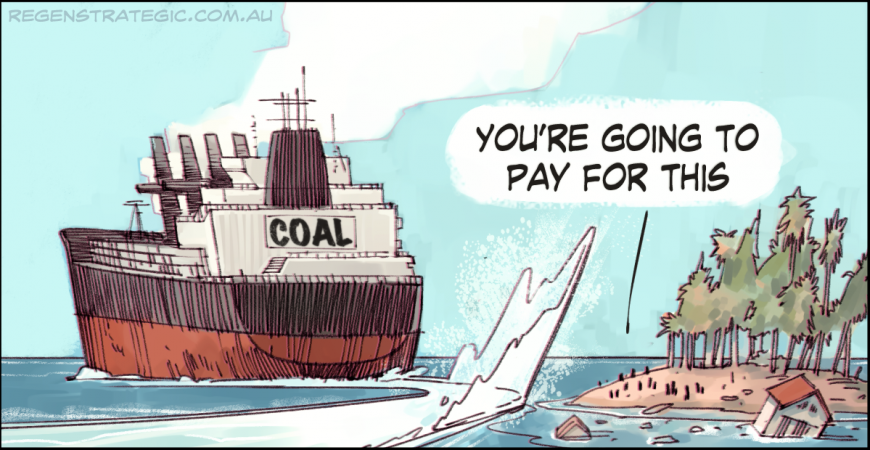Would decision making around large fossil-fuel projects in Australia differ, if reparations for the impact of their greenhouse gas emissions had to be paid to those most affected by climate change?
Under the 2015 Paris agreement, Australia signed up to mitigating our greenhouse emissions and strengthening society’s ability to adapt to the impacts of climate change.
But, the agreement also recognised the importance of addressing loss and damage for climate change impacts that went beyond our ability to adapt.
This has come into sharper focus with natural disasters like the recent floods in Pakistan, which inundated a third of the country and destroyed countless livelihoods.
With the increasing intensity of natural disasters linked to the 1.2 degrees celsius rise in global temperatures recorded since pre-industrial times, one study found the top five emitters - the USA, China, Russia, Brazil and India - to have caused US $6 trillion in income losses from global warming since 1990. It also found most of this had fallen on vulnerable people in developing countries.
Australia might be a smaller contributor to the problem, but the size of our coal and LNG export industries brings us firmly into frame.
Climate justice advocates want next month’s COP27 conference in Egypt to debate potential systems for loss and damage reparations, with many arguing fossil fuel companies should pay. That might change the calculus. Even in Australia.
This article also appeared in The West Australian newspaper.
 ReGen Strategic
ReGen Strategic